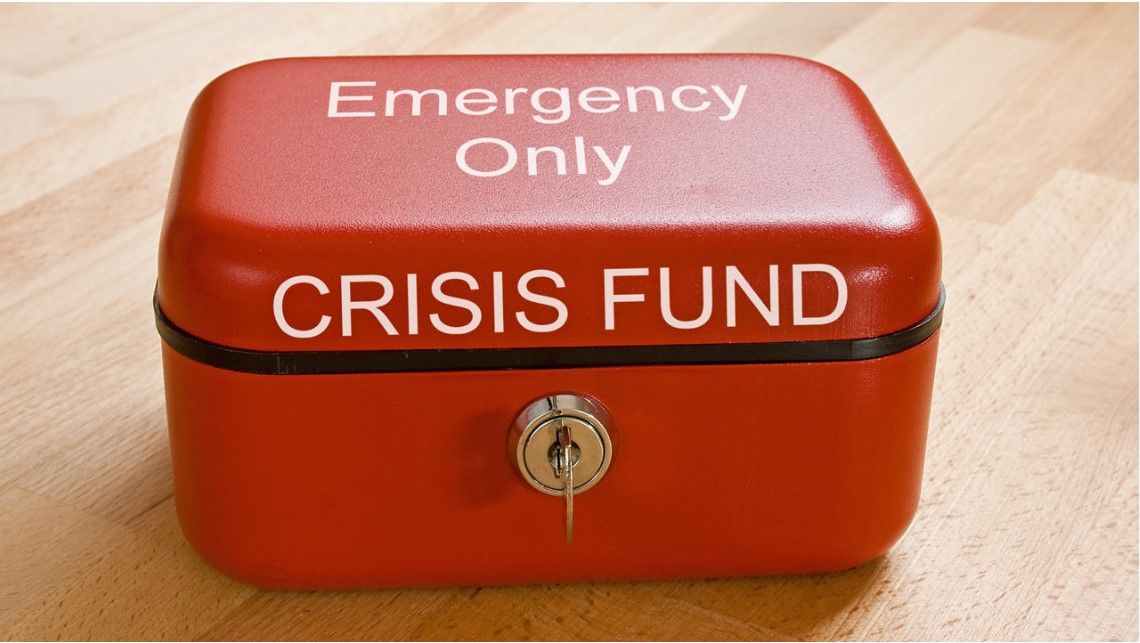
Save one third, live on one-third, and give away one-third.” – Angelina Jolie
Although Angelina Jolie is not a financial expert, but her suggestion maybe one of the most prudent advice we must take it seriously enough.
“Prevention is better than cure”.
Yes, you heard it right, you should prepare for your future, a step ahead, and so you will not suffer later.
An emergency fund is a readily available source to help you solve financial crises due to unexpected reasons. This fund can help provide financial security by creating highly liquid cash to meet any emergency and reduce the use of unsecured loans.

What if you had a job loss, a major sickness, an accident or a natural calamity? Imagine what you would do, when there is no one around? Or when none of them can help you financially? Difficult isn’t it? Here comes to rescue, your “Emergency Fund”
Have you set aside enough money, for an emergency?
If yes, how fast can you access this money?
Can your family access this money, if you
are not around? If yes, How much and how fast can they access this money?
What if you said you have already enough money in the bank?
Some people who may think they have funds in the bank, may find themselves in dire situation to realise it’s not enough when they need it the most.
Hence the money for emergencies should not be used for any other purpose; it can be used only for emergencies.
People worry about some situations, they don’t want to face but can happen, like a job loss, accident or other such unexpected situations.
BUT IF you have already put aside the funds and are ready for the worst. You may suffer and it can’t be fully eliminated, but the intensity will be reduced, at least financially.
Here is a Sure Way to Start an Emergency Fund
1. List your monthly expenses
The first step is listing all your monthly expenses.
Differentiate between expenses that are a must and which are not.
Considering unnecessary expenses will help you cut down these and increase your savings.
Include all kinds of expenses like rent, electricity bills, movies, dinner out, clothing, etc.
2. Decide your emergency fund
How much to set aside as an emergency fund?
Keeping aside 3 to 6 months’ worth real living expenses is a thumb rule. If you have a stable income you may plan for the lower figure i.e. 3 months. If your credit limit is near and your income is less secure (job insecurity), you must plan to save for the higher figure i.e. 6 months.
E.g. you earn $5,000 a month and you spend $3,000 for meeting your expenses, then your emergency fund should be in the range of $9,000 TO $15,000.
To calculate the exact amount, you need to calculate what 3 or 6 months worth of expenses is for you. Add up what you spend each month and multiply by 6 (if taken for 6 months) and 3 months (if taken for 3 months).
3. Plan to save
You have to develop a plan to save for your emergency. Your plan should include specific and measurable targets. Like how you saw in the above example, you have to decide whether you have to save for 3 or 6 months.

You will have to save a bigger sum of emergency funds. Because if you lose your job, there will be no income at all. So you will need it as there is no one to support you.

You must have a larger emergency fund as the chances of losing your job is higher and you should be prepared.

You should have a higher emergency fund as you may incur a lot of medical expenses.
Talk to our consultants who can help you with an “income and expense tracker along with the Planner for Emergency Reserve Creation”.
4. Make emergency fund accessible
It is better to put your funds in a liquid asset, as it is easily convertible into cash. If you invest in non-liquid assets like land, real estate, etc, it will be hard to liquidate them and take months to receive cash from sales.
So for emergency funds, it is best to invest in liquid assets as you will be able to withdraw it when you need it with no delay. You should also ensure you are not fined.
It may be a savings account that provides return and lets you withdraw at any time without penalty.
5. Follow the plan
If your goals are realistic, sticking to the plan is easy. One way is to set up a systematic transfer from your savings account. The emergency fund should be separate from your regular savings account so you are not tempted to spend it and also don’t think you have more cash than you do.
Questions you must ask yourself before using the Emergency Fund
a) Is it an emergency?
b) Is it a need or a want?
c) Do you need it now?
So only when in an emergency, this money should be used.
Underestimated Benefits of Emergency Fund
Peace of Mind
There is psychological power in knowing you have funds to rely on, in case of unexpected expenses. This emergency fund can give you peace of mind by assuring you that you can manage an unexpected expense.
Financial stress can affect your health and life.
By minimizing financial stress, you can improve other areas of your life. Experts say all should have an emergency fund, regardless of their financial situation, because it protects you against all the unexpected expenses that may damage your financial plans.
It helps maintain discipline in investing.
It will help you in the habit of saving regularly. As it becomes a routine, you will always save and have enough money for an emergency. You will look for reducing your daily expenses, so you will have more money to invest. This will stop you from being in debt and also pave the way for spending on things that are most important to you.
The protective layer of your financial life.
It helps protect your financial life, as you are ready for any emergency that could come your way. Your finances will not be affected due to crisis, as you have saved for all your emergency needs. You will be financially safe if there are future mishappenings or unexpected expenses.
Conclusion
As you have seen the Importance of Emergency Fund, it is suggested you set aside some money for this purpose. If it is used for some other purpose, then in an emergency, you will not have funds, especially if it is a huge sum.
So on the safer side; it is better not to use it for any other purpose. When in need, you will have the funds to use. You will not suffer much as you have already planned.
You can save 3 to 6 months’ worth of real living expenses, according to your requirements. You can invest in a savings account, fixed deposit or liquid funds.
What in case you are still not saving an emergency fund?
When emergencies happen, you will not be able to manage and fail badly. You will have no safety and no way to access cash. Not able to pay an emergency can cause personal and relationship stress as well. Ending up in debt can be the worst you can face.
Why take this risk? Are you ready to start saving for emergencies?
Once you have 3 to 6 months of living expenses set aside; you will have peace of mind. You will be happy you saved for an emergency.





